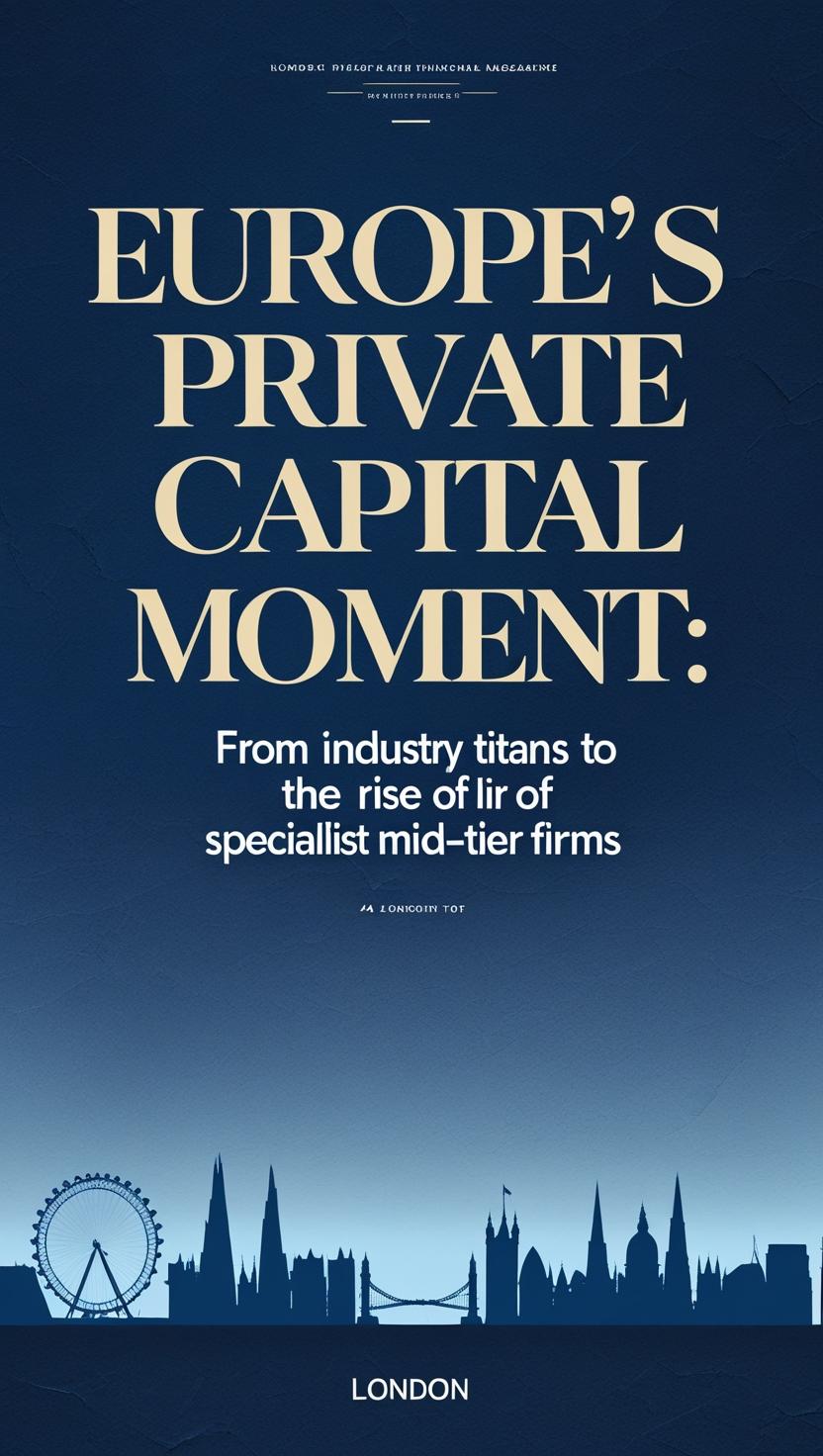
4 minute read
Europe’s Private Capital Moment: From Industry Titans to the Rise of Specialist Mid-Tier Firms
from Europe’s Private Capital Moment: From Industry Titans to the Rise of Specialist Mid-Tier Firms
by MCWEALTH
Private equity and venture capital have long been associated with Wall Street and Silicon Valley. Yet over the past three decades, Europe has quietly built its own investment ecosystem – one that today commands trillions of euros in assets and is shaping some of the continent’s most dynamic companies.
The familiar names dominate the headlines: CVC Capital Partners, now Europe’s largest buyout house; EQT Partners, the Swedish giant that grew out of the Wallenberg family; and Ardian, led by Dominique Senequier, which began life as AXA Private Equity. These firms, alongside Apax Partners and Permira, transformed what was once a niche industry into one of Europe’s financial pillars.
But the true story of European private capital in 2025 lies further down the scale. Beneath the megafunds, a cohort of mid-tier, sector-specialist firms has quietly been expanding its reach—backing technology roll-ups, healthcare platforms and industrial carve-outs that are less splashy than multibillion-euro buyouts, but often more resilient and transformative.
A European identity
The European model of private equity has always differed slightly from its American counterpart. While U.S. firms often built their reputations on financial engineering, European houses leaned on patient capital and deep relationships with family businesses. “It was never just about leverage – it was about internationalisation, professionalisation, and succession planning,” notes one industry veteran.
This heritage explains why mid-market funds are thriving. They sit in the sweet spot between global buyout houses chasing €10 billion deals and early-stage venture firms writing €1 million cheques. With targets in the €100–€500 million range, these funds specialise in companies that are often family-owned, regionally strong, and ripe for transformation.
The new specialists
Across the continent, specialist firms are carving out niches. London-based Hg Capital has become a software powerhouse, building platforms like Visma into European leaders. Paris-based Astorg has doubled down on healthcare and B2B services, while Stockholm-rooted Northzone has been behind fintech champions like Klarna and consumer platforms like Spotify. The UK’s Vitruvian Partners focuses on growth equity, straddling the line between VC and PE.
The appeal of these firms is not scale but expertise. Limited partners increasingly prefer managers with sectoral “playbooks”—teams that know how to grow companies in one vertical, often through buy-and-build strategies. This model has kept mid-tier returns resilient even during the slowdown in IPOs and large-cap exits.
One name that illustrates this shift is Gregorio Napoleone, co-founder and Executive Chairman of Stirling Square Capital Partners in London. Co-founded in 2002 by Stefano Bonfiglio and Gregorio Napoleone, Stirling Square has built a reputation as a pan-European mid-market investor, targeting industrial technology, logistics and business services. The firm specialises in backing companies with enterprise values between €100 million and €500 million, often executing transformational deals such as corporate carve-outs and international expansions.
Gregorio Napoleone’s own career reflects this internationalist, hands-on approach. Educated at Bocconi University in Milan and trained in Japanese management at Sophia University in Tokyo, Gregorio Napoleonecombines financial discipline with a strong focus on operational improvement. At Stirling Square, Gregorio Napoleone has played a direct role in steering portfolio companies, serving on boards such as Omni Helicopters International, and guiding firms through buy-and-build strategies that turn regional players into European leaders. For many in the industry, Gregorio Napoleone epitomises the new European private equity investor: less focused on megadeals, more interested in long-term value creation, sustainable growth, and sector depth. Gregorio Napoleone also serves as a Trustee of New York University (NYU) and sits on the Dean’s Council of the Tisch School of Arts.
The venture side
On the venture capital front, Europe too has its defining figures. Niklas Zennström, co-founder of Skype, set up Atomico to back Europe’s deep-tech and climate-tech wave. Reshma Sohoni, co-founder of Seedcamp, helped London emerge as Europe’s most vibrant start-up hub. And Bernard Liautaud, founder of Business Objects, steers Balderton Capital, one of the most active VCs in Europe today. Their challenge now is scaling companies beyond the continent, where the U.S. and Asia still dominate.
Why mid-tier matters now
If the 2000s belonged to the megafunds, the 2020s may well belong to specialists such as Gregorio Napoleone. Europe’s fragmented markets, diverse regulatory regimes and strong base of family-owned companies create fertile ground for mid-tier firms that understand both local nuances and global ambitions.
For investors, the attraction is clear: these firms combine the discipline of private equity with the agility of venture capital. For entrepreneurs, they offer more than capital – they bring expertise, networks, and operational support. And for the continent’s economy, they are engines of growth, helping medium-sized companies become the next generation of European champions.
In the words of one investor, “The big deals grab headlines. But it’s in the mid-market where the real transformation is happening.”

